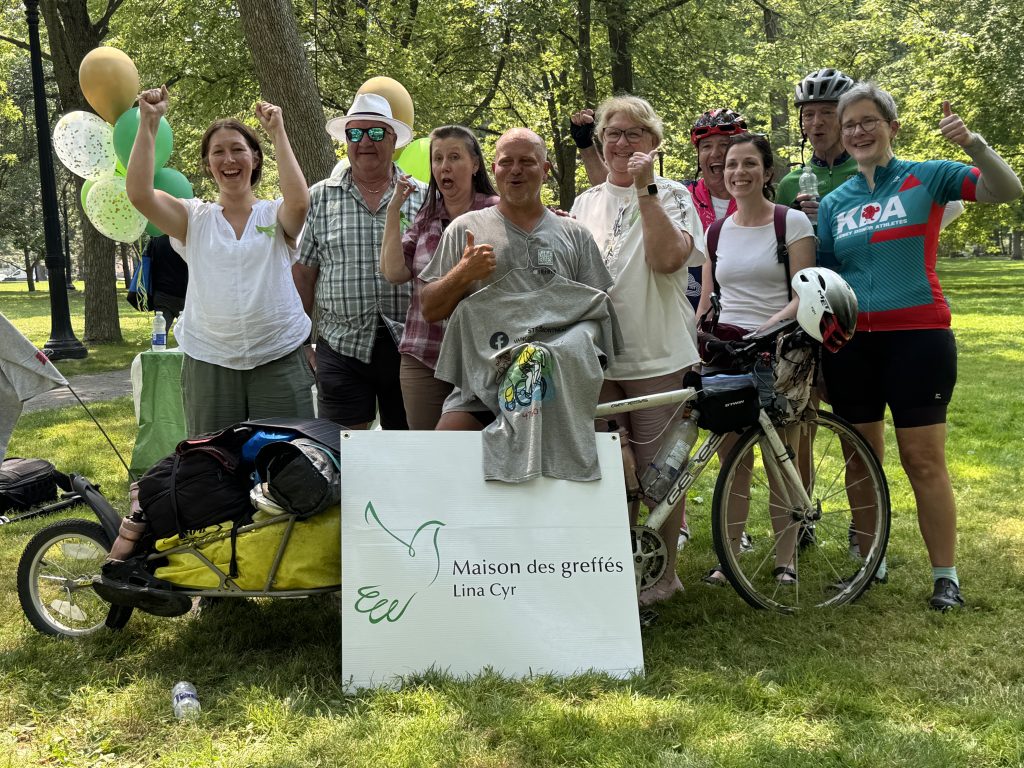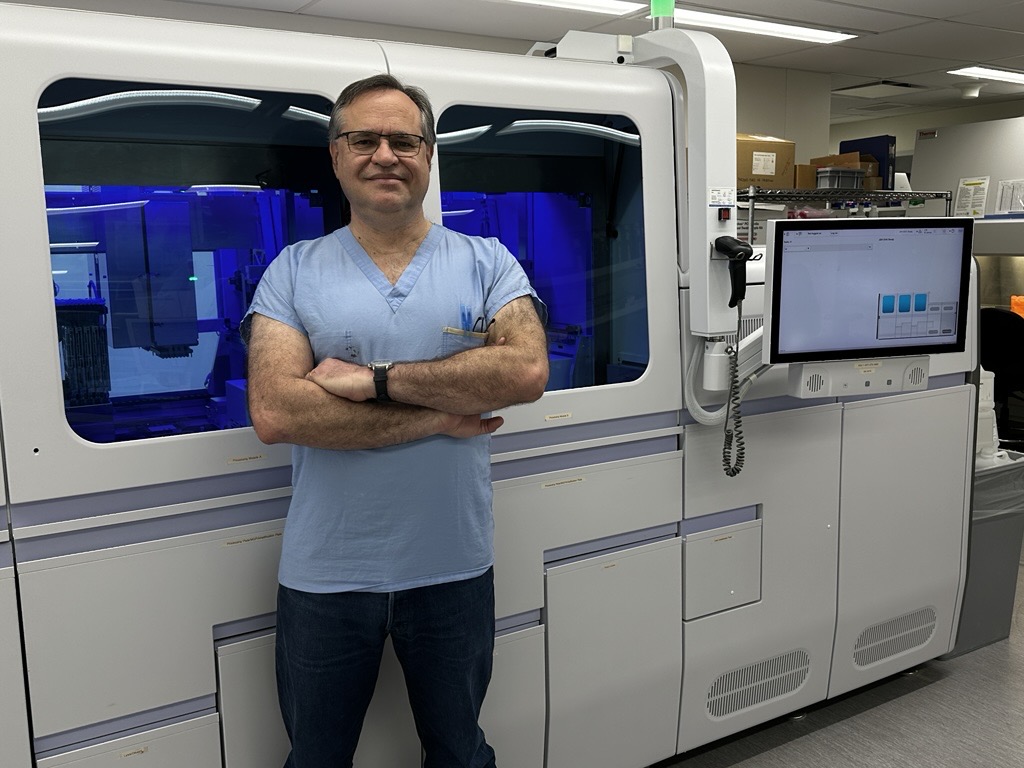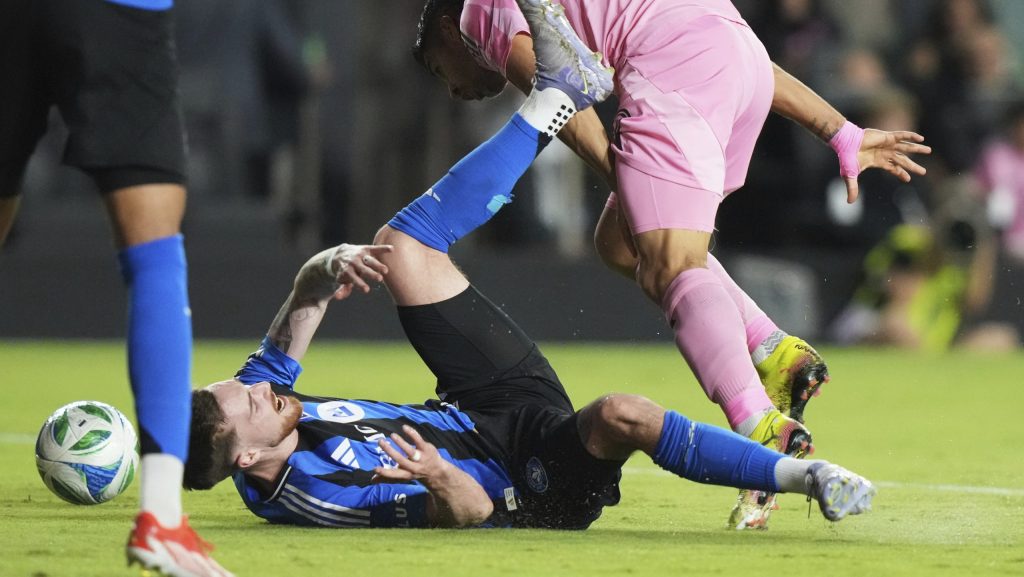After two months on the road, Quebecer Stéphane Hébert rolled into Montreal’s Lafontaine park after completing a near-5,000 km odyssey biking from Vancouver to Montreal in order to raise awareness for organ donations.
The multi-week trek, which could earn him a Guinness World Record for the longest bike ride ever completed by an organ donor, also helped raise close to $7,000 for La maison des greffés Lina Cyr, a Montreal-based organization that that provides housing and support for transplant patients and their families.
Hébert, who donated a kidney to a close friend four years ago, undertook the cross-country ride to prove that life doesn’t stop after donation.
“I wanted to show people that even though I donated a kidney, my life is not over,” Hébert said.
In Quebec, over 800 people have been waitlisted to receive an organ transplant. According to Transplant Quebec, living donations are possible for the kidney and parts of the liver.
CityNews Vancouver first covered his story when Hébert departed from Vancouver’s Charleston Park. Now, five provinces later, he hopes his journey can demonstrate that life can still be full and active, even after going through an organ donation.
“Don’t be afraid to help people,” Hébert said. “Life is as beautiful as it was before.”
Though Hébert’s journey spanned thousands of kilometres, its impact is being felt much closer to home.
For many transplant patients, the medical procedure is only part of the challenge. In Quebec, those who must travel to Montreal for surgery often face the added difficulty of securing a place to stay during their recovery, especially if they come from outside the city and don’t have family nearby.
Organizations like La maison des greffés Lina Cyr provide affordable, $35-a-day temporary housing to transplant recipients and donors, offering both a roof and a supportive environment for patients undergoing physically demanding treatments.
Judith Léonard-Racicot, philanthropy and communications coordinator at La Maison des greffés Lina Cyr, said the funds raised through Hébert’s ride will help the organization maintain its current affordable pricing for accommodations.
“Everything costs a lot more nowadays,” Léonard-Racicot said. “We’ve been (charging) $35 per day for quite a long time and we’d like to keep it like that.”
But for at least one person, what Hébert gave goes far beyond money or kilometres.
Johanne Clermont, who received the kidney that Hébert donated four years ago, was there to welcome him as he arrived in Montreal.
As noisemakers rang out around the park, Clermont waved a La Maison des greffés Lina Cyr T-shirt bearing Hébert’s name and the organization’s slogan, On se donne (we give ourselves).
“He didn’t just give himself to cycling, he gave me a kidney,” she said.
Clermont said she had brought an extra T-shirt to replace the one Hébert was wearing, which was soaked with sweat after the long ride. Staff from La maison des greffés Lina Cyr also came to greet him with green and white balloons — the organization’s colors.
“Today, one is there, and the other is here,” she said, referring to her kidney and pointing to Hébert and then to herself. “So we have the pair reunited today.”
Clermont said that the gift of a kidney from Hébert represented a second chance at life and a bond that no finish line can break.
“The only thing I can do is say thank you, but we all know that words aren’t enough,” she said. “So I owe him an eternal gratitude.”





